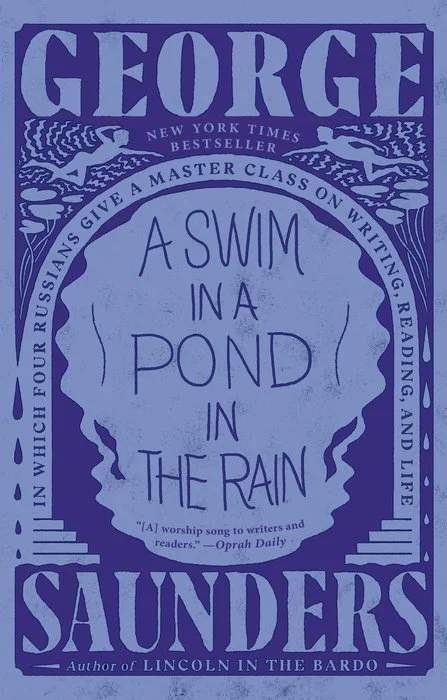Thinking About Short Stories
When writing short stories, I focus on the plot, characters, and the setting of the world I’m creating. I tell it as well as I possibly can in the moment, and devote time afterward “polishing” that first draft. On most stories, it typically takes me two to three days to reach the second draft phase. From there, it depends how much more time I’ll tinker with it. Am I completely satisfied with it? If yes, then I stop and submit the piece to a market. If not, more tinkering.
So it was a revelation to read a book by George Saunders entitled:
A Swim in a Pond in the Rain: In Which Four Russians Give a Master Class on Writing, Reading, and Life.
A while back, I wrote an article for SleuthSayers about the book because it struck me as a truly important text for professional short story writers, which so many of us at SleuthSayers are.
To explain what I mean by “important,” let me state that I have not written a lot of short stories, but my modest output has earned me some decent acclaim. Shortlisted for Derringers three times, won once. Another story picked for the Best American Short Mysteries anthology. So at the very least, I can claim that my peers certainly seem to think I know what I’m doing.
But Saunders blew my mind with his meticulous analysis of the Russian shorts in this book. I learned more from his book than I probably learned in all the writing classes I’ve ever had. Granted, I’m older now, and his book most likely hit me at a point in my career where I could hear his message.
Saunders digs into how stories work, and how writers intuitively know how to “polish” them. What does it mean to do such a thing? How do you do it?
When revising, Saunders says, you’re engaging in a useful charade. You make minuscule changes along the way, all the while pretending that you’re reading the piece for the first time. Why do you make this change or that one? You probably don’t know. Instinct guides your hand. If you’ve done this countless times before, you will make the story incrementally better, and you will naturally know when to stop. Some piece of you knows that if you press on, you’ll blow it.
Writers should definitely pick this one up. It articulates things about our profession that you probably never thought to make explicit. If you are not a writer, but you are interested in how writing happens, or how readers come to a story, you should check out the book.
If you’re on the fence, and need to know more, read my post, which is entitled:
The Detective in Your Mind!
The brilliant Prof. Saunders
Cool side note: Saunders is one of the most acclaimed practitioners of short stories today. He’s a MacArthur Fellow, and a creative writing professor at my alma mater, Syracuse University. It is possible that he and I were on campus at the same time in the 1980s, though he would have been a grad student while I was an undergrad. Either way, we both studied with Tobias Wolff, who was teaching in the creative writing program at the same time.


